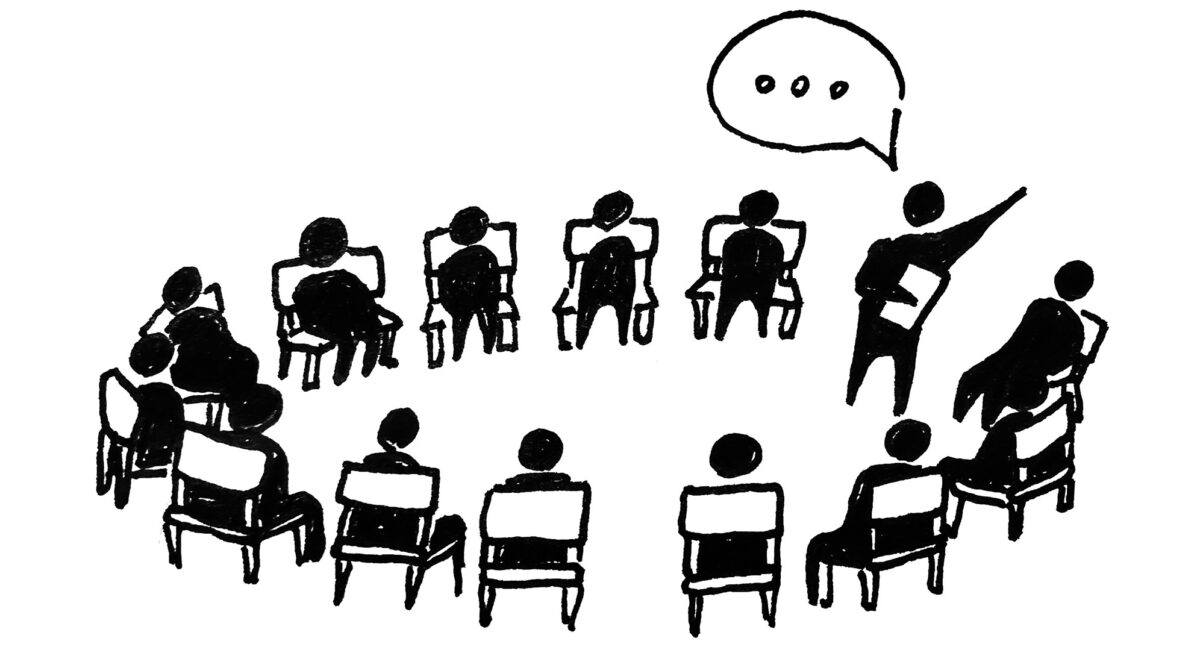Open Space is a meeting format used to create opportunities for people to engage deeply and creatively around issues of concern to them. It is a simple and powerful way to catalyze effective working conversations in times of change. Open Space can be used in almost any context and with groups of 10 to 1,000.
Steps:
- The group convenes in a circle and is welcomed by the sponsor.
- The facilitator provides an overview of the process and explains how it works.
- The facilitator then invites people with issues of concern to come into the circle, write the issue on a piece of paper, and announce it to the group. These people are conveners.
- The convener places their paper on the wall and chooses a time and a place to meet. This process continues until there are no more agenda items. The group then breaks up and heads to the agenda wall, by now covered with a variety of sessions. Participants take note of the time and place for sessions they want to be involved in.
- Dialogue sessions convene for the remainder of the meeting. Recorders determined by each group capture the important points and post the reports on the news wall.
- Following a closing or a break, the group might move into convergence, taking the issues that have been discussed and attaching action plans to them to “get them out of the room.”
- The group then finishes the meeting with a closing circle where people are invited to share comments, insights, and commitments arising from the process.
Considerations:
- It’s important to give enough time and space for several sessions to occur. The amount of time will vary and there isn’t an exact science to it – generally allow 20, 40, 0r 60 minutes per session depending on the depth of the topics and the group.
- Conveners and folks setting the agenda should be the people with the power and desire to see their topics through.
- Consider what you hope for the attendees to leave with as a way to shape up the approach to documentation.
- The lasting power of this approach is in the documentation methods that are used, from personal structured note taking to detailed proceedings of the event.
References:
- (2023). Leading Courageously in Higher Education: The Art of Hosting and Harvesting Conversations that Matter. Seattle, Washington. Daniel J. Evans School of Public Policy & Governance.
- Moeller, T. (2023, August 13). Open Space technology practise – an ancient and forever new practice of of selforganising around what matters now [Video]. Vimeo. Retrieve from Open Space technology practise – an ancient and forever new practice of of selforganising around what matters now on Vimeo


